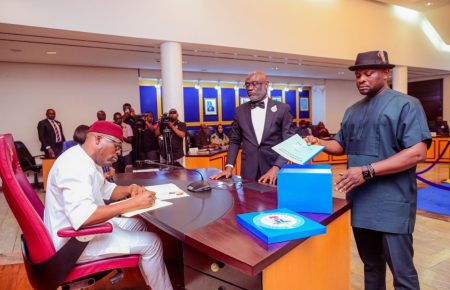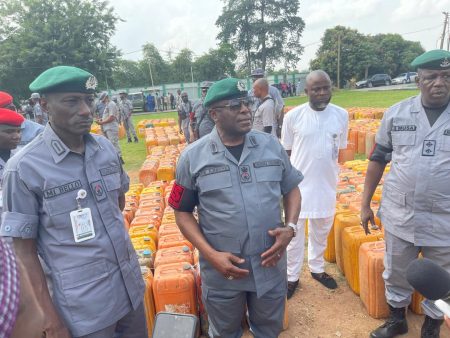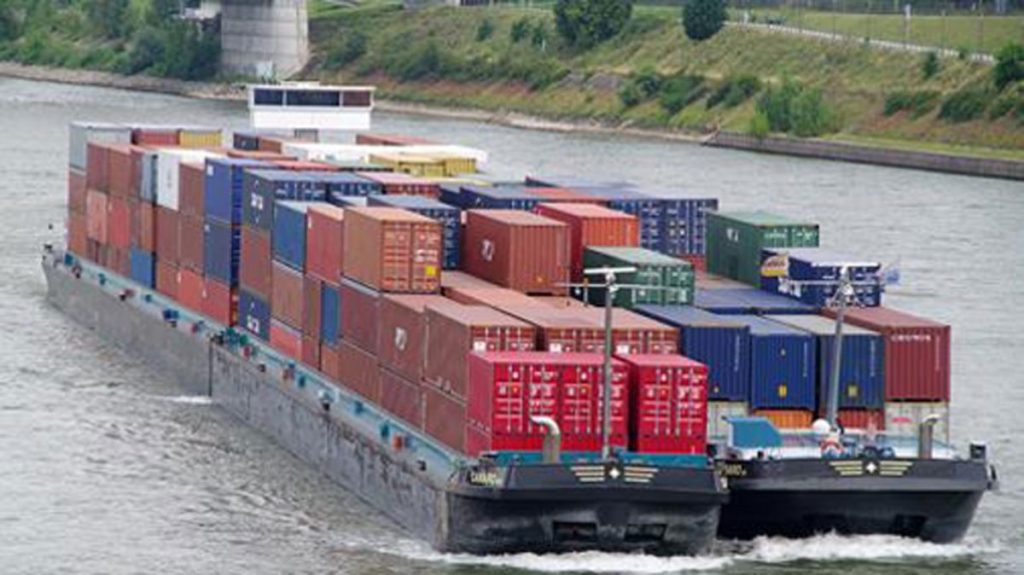 12 March 2017, Sweetcrude, Port Harcourt — A fortnight ago, the Vice President, acting as President visited the troubled Niger Delta Region to take stock of the situation on the ground and to parley with the authorities and folk who govern and live within the precincts of oil and gas operations. The motivating rationale for this visit by the learned professor is, in accordance with the periods of their occurrence, a regional political arrangement which the Oil Rivers People were very suspicious of, a coup against the very first republic of Nigeria, a counter-coup, a civil war, the creation of new political enclaves to undermine the regional blocs, particularly, the war effort of Biafra, the enactment by fiat of the Petroleum Resources Decree which appropriated the resources of a region and vested them in the federal government ostensibly to bolster the financial prospects of the federal war effort, the retention of the Appropriated Resources after the war, the commencement of Intellectual Protests to the Retention of the Appropriated Resources, the hanging of Ken Saro-Wiwa, the alter ego of the Intellectual Protests, the validation of the Oil and Gas business as Nigeria Plc by the 1999 Constitution with a clinical sharing formula that mandates 36 states’ accountants and 774 LGAs representatives to cluster in Abuja monthly for the sole purpose of divvying up the dubious profits of Nigeria Plc, the entry into the discourse of armed protests, an inane scorched earth policy reminiscent of 19th Century Russia in the face of a Napoleonic war enterprise and finally, the crystallisation of a competitor, yes, an adverse competitor to Nigeria Plc: local kingpins “stealing” and refining crude into unwholesome and dangerous products.
12 March 2017, Sweetcrude, Port Harcourt — A fortnight ago, the Vice President, acting as President visited the troubled Niger Delta Region to take stock of the situation on the ground and to parley with the authorities and folk who govern and live within the precincts of oil and gas operations. The motivating rationale for this visit by the learned professor is, in accordance with the periods of their occurrence, a regional political arrangement which the Oil Rivers People were very suspicious of, a coup against the very first republic of Nigeria, a counter-coup, a civil war, the creation of new political enclaves to undermine the regional blocs, particularly, the war effort of Biafra, the enactment by fiat of the Petroleum Resources Decree which appropriated the resources of a region and vested them in the federal government ostensibly to bolster the financial prospects of the federal war effort, the retention of the Appropriated Resources after the war, the commencement of Intellectual Protests to the Retention of the Appropriated Resources, the hanging of Ken Saro-Wiwa, the alter ego of the Intellectual Protests, the validation of the Oil and Gas business as Nigeria Plc by the 1999 Constitution with a clinical sharing formula that mandates 36 states’ accountants and 774 LGAs representatives to cluster in Abuja monthly for the sole purpose of divvying up the dubious profits of Nigeria Plc, the entry into the discourse of armed protests, an inane scorched earth policy reminiscent of 19th Century Russia in the face of a Napoleonic war enterprise and finally, the crystallisation of a competitor, yes, an adverse competitor to Nigeria Plc: local kingpins “stealing” and refining crude into unwholesome and dangerous products.
The Vice President, one suspects, would like to reverse the Great Appropriation to the Federal Government’s old role of regulating and taxing the oil and gas industry, which would greatly reduce the Federal Government’s wage burden, increase its income stream, boost the productivity of the Federal Government Allocation reliant states and LGAs, create specialisation, sub-industries, feeder industries and a robust economy for the benefit of ALL while also achieving the peace that has eluded Nigeria since the Petroleum Resources Decree of 1969 was enacted. But the Vice President is a simple man. More, he is a practical politician that understands the meaning of not “ruffling feathers” in Nigerian dialectics. The local refineries of the Niger Delta are illegal operations that produce harmful fuels. Strangely, however, filling stations, production platforms and most industrial operations within the Niger Delta depend on their products and though the general belief is that locally produced fuels are the cause of domestic and industrial accidents involving poorly produced kerosene and diesel, there have been fewer and fewer of such accidents as the local refineries rejig their refining strategies.
Perhaps it is in recognition of the role the crudely produced fuels have played in stabilising the upstream sub-sector; perhaps too, a spirit of contriteness is moving within the corridors of power and giving government operatives fresh insights into the plight of the people of the Niger Delta who have condescended to “stealing” their own resources at the risk of lives and limbs to survive. It may also be that this is a cold business decision informed by the losses inflicted on the industry and the nation within a perpetual contest for primacy and control over Nigeria’s oil and gas deposits. Whatever has driven the federal government’s commitment to provide modular refineries for the locals that deploy crude means to refine the crude stolen from the pipelines of Nigeria’s partners and subsidiaries, this policy if actualised, has the potential of monitoring the local players for taxation, regulation and the standardisation of their activities. It would also legalise their operations, take away the need to vandalise pipelines to gain access to crude and give the locals stakes in the peace, safety and security of the operational environment. Businesses would develop to serve the needs of the modular refineries and jobs would be created. Most importantly, the Federal Government can attempt to get the people of the Niger Delta to believe that they are indeed part of a country.



